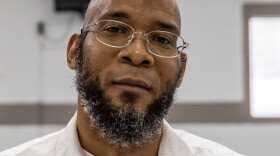-
The report from Missouri Attorney General Andrew Bailey didn't include a "disparity index" showing whether police stopped drivers in minority groups more frequently than white drivers.
-
Darryl Jaspering of Warrenton wrote a threatening message on the St. Louis NAACP’s contact page, tried to intimidate employees and threatened use of a weapon, alleges the indictment.
-
A Missouri judge threw out a lawsuit from the Missouri NAACP and other groups challenging the state's law requiring a government-issued ID to vote. But the plaintiffs say "the court got the test wrong" and ignored the burden the law places on voters.
-
Missouri lawmakers passed legislation in 2022 that established a photo ID requirement at the polls. The NAACP and voting rights group had sued, arguing that its intention was to disenfranchise large groups of people.
-
"Taking the life of Marcellus Williams would be an unequivocal statement that when a white woman is killed, a Black man must die. And any Black man will do," wrote NAACP president Derrick Johnson.
-
The NAACP and the League of Women Voters are challenging Missouri's 2022 voter ID law, arguing it imposes unconstitutional burdens on the right to vote without actually achieving the stated goal of reducing fraud. Two previous attempts by Missouri Republicans to require voter IDs have been struck down by the courts.
-
Missouri heads to trial over voter ID law accused of disenfranchising elderly and disabled residentsA trial starting Friday will be the third time Missouri courts have weighed the merits of a law intended to combat fraud against right to vote without interference. Twice before, Missouri's photo ID requirements have been struck down as violations of the state’s constitution.
-
The Missouri General Assembly passed a law in 2017 making it harder for people to prove housing discrimination cases. Because that violates the federal Fair Housing Act, Missouri loses hundreds of thousands of dollars every year that would have been used to investigate discrimination complaints.
-
The Mayor's Commission on Reparations met for the first time on Tuesday, May 23 at City Hall. The group’s task is to study how slavery and racial segregation policies over the last century harmed Kansas City’s Black citizens in areas such as education and housing.
-
Negro Creek runs for 6.5 miles south of 151st Street, through parts of Overland Park and Leawood, but few people knew its name until the Black Lives Matter protests in 2020. An informal committee that included members of the NAACP and other community groups began exploring the creek's origin but couldn't agree on an alternative name for the creek.
-
National civil rights leaders, local activists and community leaders held a press conference and led protestors Tuesday afternoon outside the Federal Courthouse in downtown Kansas City. They showed up to decry last week’s shooting of a Black teenager after he rang the wrong doorbell in a Northland neighborhood.
-
The position will oversee the equity measure that legalization campaign supporters boast to be the first of its kind in the nation — a microlicense program designed to boost opportunities in the marijuana industry for businesses in disadvantaged communities.
Play Live Radio
Next Up:
0:00
0:00
Available On Air Stations









